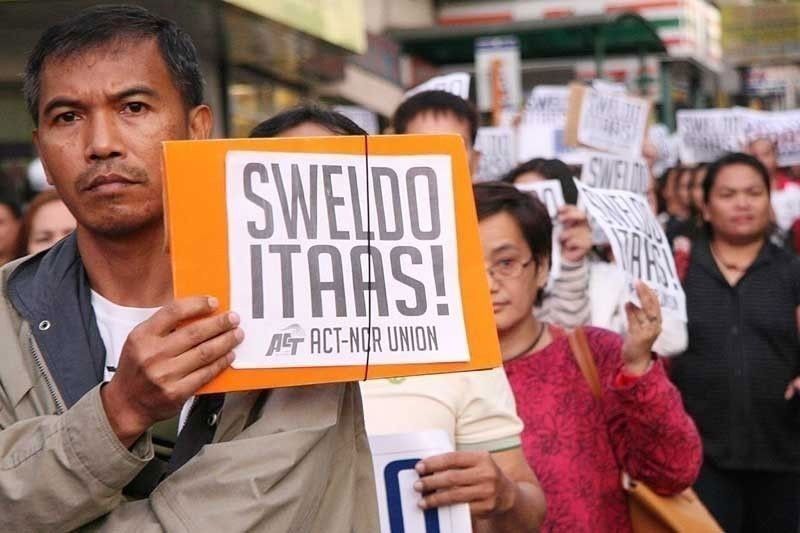As if businesses were not into "contractualization" (aka end of contract arrangements) and seasonal employment even before, they are now using the proposed mandated wage hike of P100 a day as an excuse to resort to their ages-old practices.
In a letter to the House Committee on Labor and Employment, the Employers Confederation of the Philippines, Alliance of Workers in the Informal Economy/Sector, Philippine Chambers of Commerce and Industry and the Philippine Exporters Confederation Inc. expressed concern about the proposed P100 national wage hike for workers in the private sector.
The business community said a wage hike could leave businesses with no choice but to resort to informal employment arrangements, leading to lack of job security and exploitation of workers.
This, after the Senate recently approved on third and final reading Senate Bill No. 2534 or “An Act Providing for 100 Pesos Daily Minimum Wage Increase for Employees and Workers in The Private Sector, Business Mirror reported.
The Senate bill adjusts the minimum wage for private sector employees—in the formal sector, but that aside from the private sector employees, there are also public sector (state) employees, and workers in the informal sector who are not covered and would not benefit from the wages but instead suffer its “ill effects,” the business community said.
They said that the Informal Sector (IS) comprises roughly 80 percent of the total workforce in the Philippines.
IS sector workers are individuals who engage in economic activities that are not regulated or officially recognized by the government.
“They do not have the same access to social protection, benefits and labor rights as workers in the private and public sectors. Majority of them are self-employed, or work in small family businesses or micro enterprises,” the business community said.
The concerned business groups said activities of these workers include street vending such as sari-sari stores, farmers, fisher folks, home-based work, domestic labor, small-scale agriculture and other forms of “informal work.”
Informal sector workers face several challenges such as low wages, job insecurity, lack of access to healthcare and education, and vulnerability to exploitation.
Illustrating the effect of the wage hike on the informal workers should the wage hike push through, the business groups emphasized: “Instead of hiring employees formally, some businesses will be left with no choice but to resort to informal employment arrangements, to dodge the higher minimum wage requirements.”
The groups’ joint statement then warned: “This growing ’informalization’ of labor can lead to lack of job security, inadequate benefits, and exploitation of workers.”
If the proposed legislated wage hike is enacted into law, the groups said more than 8 out of 10 workers in the government and the informal sector will not receive any adjustment.
“In fact, only the roughly 4 million workers receiving minimum wages will receive the P100/day wage increase, while the other employees in the formal sector will likely receive token wage distortion adjustments,” the groups said in their letter.
This means that while a “relatively small number” of minimum wage earners in the private sector will stand to benefit from the wage hike, a “supermajority” of the country’s workers will not receive any adjustment in their current wages.
As such, the groups added, this could lead to a widening income gap between
Photo Credits : PhilStar Global
